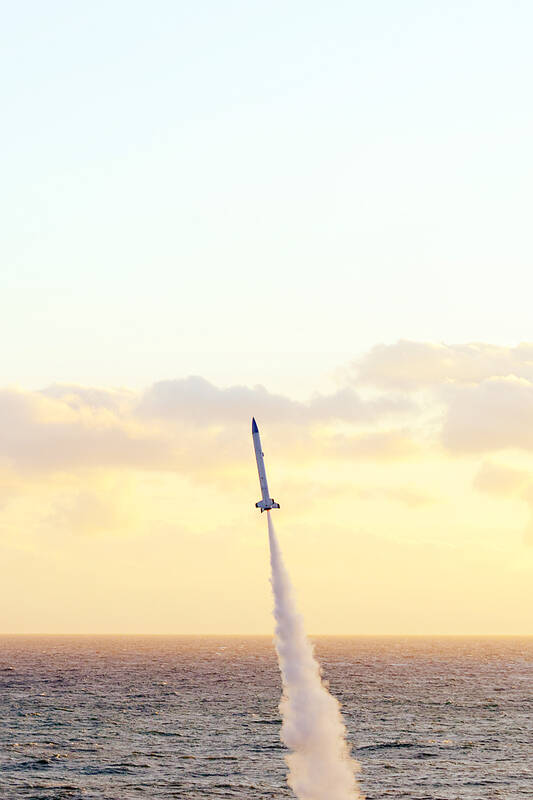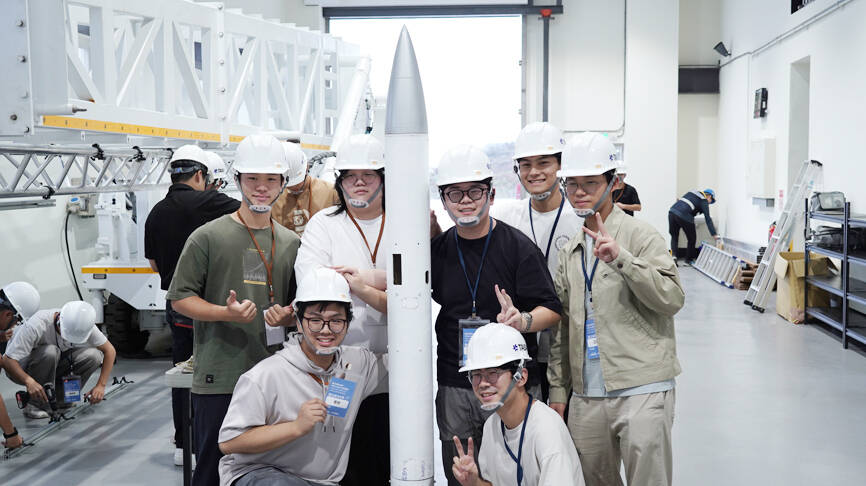STAR-STUDDED STUDENTS:
Students are staging increasing numbers of launches out of the Pingtung rocketry site for the equipment-laden research rockets they build
By Tsai Tsung-hsien and Jake Chung / Staff reporter, with staff writer
The successful launch of a research rocket by the National Cheng Kung University (NCKU) yesterday at Pintung County’s Hsu-Hai Research-use Rocket Launching Area is a result of the National Science and Technology Council’s efforts to foster homegrown aerospace engineering talent within Taiwan, the Taiwan Space Agency (TASA) said.
The project is educating students to help fill gaps in Taiwan’s aerospace industry, according to TASA.
The rocket, designated “Afterlight 1,” was launched at 6:30am yesterday and was not recovered, the team said.

Photo courtesy of Taiwan Space Agency
The team comprised members from NCKU’s Department of Aeronautics and Astronautics, Combustion and Propulsion Lab, and the university’s Institute of Space Propulsion student club.
The rocket was built from fiberglass, powered by a solid fuel motor, equipped with a parachute, and was designed to reach a maximum altitude of 1km while carrying 4kg, according to professor and project head Wu Chih-yung (吳志勇).
The wind speed at the launching area yesterday morning was about 7 or 8 meters per second, and the team lowered the launch angle from 80° to 75° to compensate, he said.

Photograph courtesy of the Taiwan Space Agency
The two-section rocket was supposed to pop apart at its apogee and have the rear section land with a parachute, but the design could not be tested, as the rocket had only achieved an altitude of 761m, Wu said.
The avionics system recorded the altitude, speed, acceleration and other data, he added.
“Although we didn’t recover the rocket, our experiences have made us more capable,” the team’s safety officer and NCKU Department of Mechanical Engineering student You Chun-hung (尤鈞閎) said, adding the club is already designing the next generation of the rocket.
Since the Hsu-Hai launch area entered active commission, 11 research rockets have been launched from there, TASA said.
